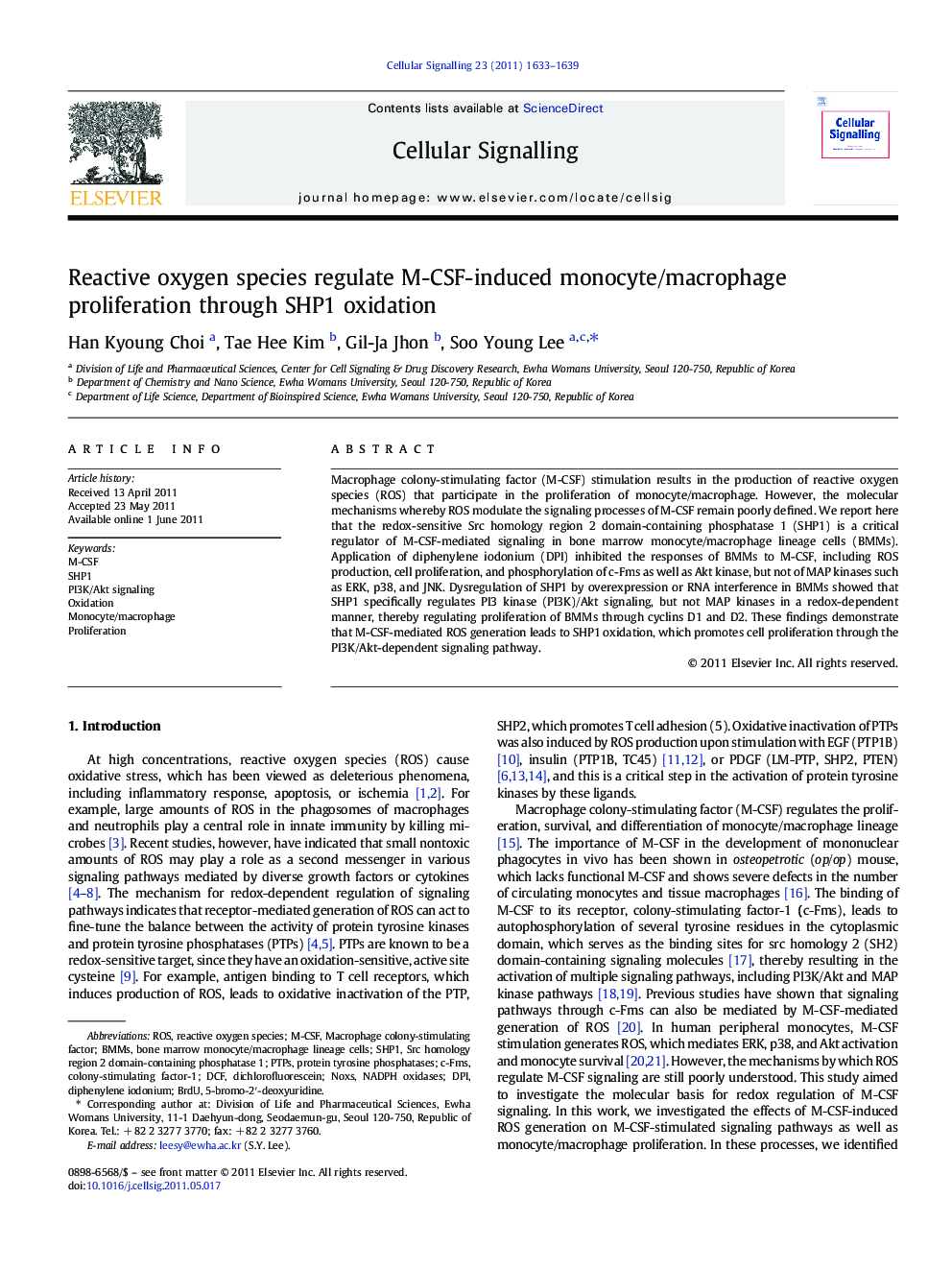| Article ID | Journal | Published Year | Pages | File Type |
|---|---|---|---|---|
| 1964748 | Cellular Signalling | 2011 | 7 Pages |
Macrophage colony-stimulating factor (M-CSF) stimulation results in the production of reactive oxygen species (ROS) that participate in the proliferation of monocyte/macrophage. However, the molecular mechanisms whereby ROS modulate the signaling processes of M-CSF remain poorly defined. We report here that the redox-sensitive Src homology region 2 domain-containing phosphatase 1 (SHP1) is a critical regulator of M-CSF-mediated signaling in bone marrow monocyte/macrophage lineage cells (BMMs). Application of diphenylene iodonium (DPI) inhibited the responses of BMMs to M-CSF, including ROS production, cell proliferation, and phosphorylation of c-Fms as well as Akt kinase, but not of MAP kinases such as ERK, p38, and JNK. Dysregulation of SHP1 by overexpression or RNA interference in BMMs showed that SHP1 specifically regulates PI3 kinase (PI3K)/Akt signaling, but not MAP kinases in a redox-dependent manner, thereby regulating proliferation of BMMs through cyclins D1 and D2. These findings demonstrate that M-CSF-mediated ROS generation leads to SHP1 oxidation, which promotes cell proliferation through the PI3K/Akt-dependent signaling pathway.
Research Highlights► ROS generation plays a key role in M-CSF-induced cell proliferation. ► M-CSF-mediated ROS generation leads to SHP1 oxidation. ► SHP1 oxidation promotes cell proliferation through PI3K/Akt signaling pathway. ► SHP1 is a biological target of M-CSF-induced ROS.
